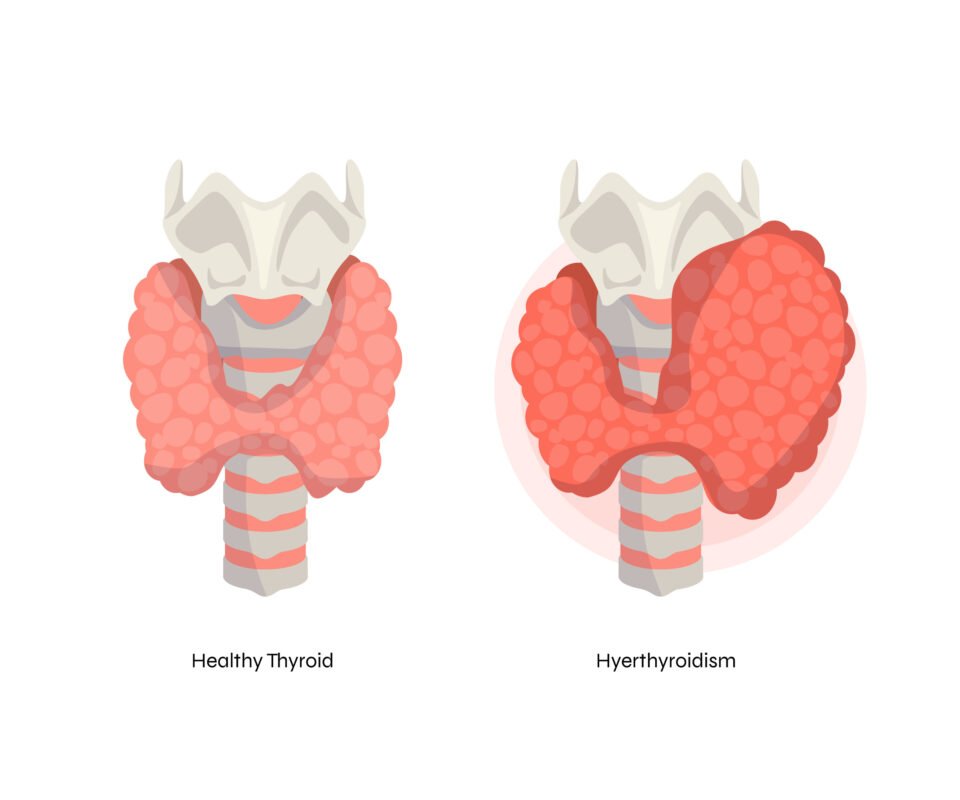Introduction: Thyroid nodules are common thyroid gland abnormalities, affecting a significant portion of the population. While most thyroid nodules are benign, some may require medical attention due to their size, symptoms, or suspicious characteristics. In this comprehensive guide, we will delve into the nature of thyroid nodules, their diagnosis, and various treatment options available, with a focus on thyroid nodule ablation as an effective therapeutic approach.
Understanding Thyroid Nodules: Thyroid nodules are abnormal growths or lumps that develop within the thyroid gland, located at the base of the neck. These nodules may vary in size and can be single or multiple. While the majority of thyroid nodules are non-cancerous (benign) and do not cause any symptoms, some nodules may lead to thyroid dysfunction, discomfort, or cosmetic concerns.
Diagnosis of Thyroid Nodules: Diagnosing thyroid nodules typically involves a combination of physical examination, imaging studies, and laboratory tests. Common diagnostic procedures include:
- Physical Examination: A healthcare provider may palpate the neck area to detect any abnormal swelling or nodules in the thyroid gland.
- Imaging Studies: Ultrasound imaging is commonly used to visualize the thyroid gland and assess the size, location, and characteristics of thyroid nodules.
- Fine Needle Aspiration (FNA) Biopsy: FNA biopsy involves using a thin needle to collect tissue samples from thyroid nodules for microscopic examination. This procedure helps determine whether a nodule is benign or malignant (cancerous).
Treatment Options for Thyroid Nodules: Treatment for thyroid nodules depends on various factors, including the size, characteristics, symptoms, and patient preferences. Common treatment options include:
- Observation: In cases where thyroid nodules are small, asymptomatic, and benign, a “watchful waiting” approach may be recommended, with periodic monitoring through physical examination and ultrasound imaging.
- Thyroid Hormone Therapy: Thyroid hormone replacement therapy may be prescribed to suppress the growth of benign thyroid nodules and alleviate symptoms such as hyperthyroidism or hypothyroidism.
- Radioiodine Therapy: Radioiodine therapy involves the oral administration of radioactive iodine, which is selectively taken up by thyroid tissue, including nodules. This treatment is primarily used for thyroid nodules associated with hyperthyroidism or thyroid cancer.
- Surgery: Surgical removal of thyroid nodules (thyroidectomy) may be necessary for nodules causing significant symptoms, suspicion of malignancy, or cosmetic concerns.
Thyroid Nodule Ablation Treatment: Thyroid nodule ablation is a minimally invasive procedure that involves using heat or cold to destroy thyroid nodules, thereby reducing their size or eliminating symptoms. This treatment option is particularly suitable for benign thyroid nodules that are causing compression symptoms or cosmetic issues. Thyroid nodule ablation techniques include:
- Radiofrequency Ablation (RFA): RFA utilizes high-frequency electrical energy to generate heat, which is applied to the thyroid nodule through a needle electrode inserted under ultrasound guidance. The heat destroys the nodule tissue while preserving surrounding healthy thyroid tissue.
- Ethanol Ablation (EA): EA involves injecting ethanol (alcohol) directly into thyroid nodules to induce necrosis (cell death). This technique is effective for small cystic thyroid nodules and may be repeated if necessary.
Conclusion: Thyroid nodules are common thyroid gland abnormalities that may require medical evaluation and treatment based on their characteristics and clinical significance. Understanding the available treatment options, including thyroid nodule ablation, empowers patients and healthcare providers to make informed decisions tailored to individual needs and preferences. Effective management of thyroid nodules can lead to improved quality of life and overall thyroid health.


